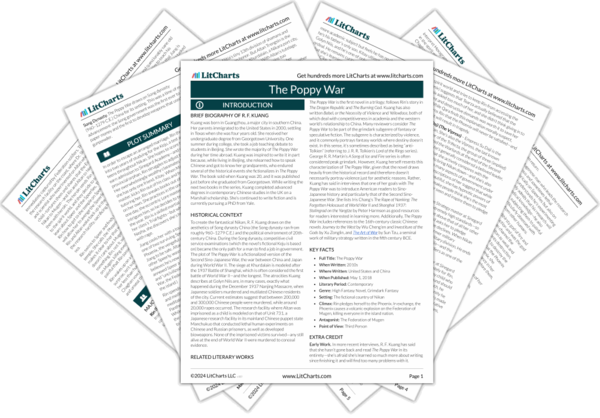There are two ways to read what happens here. First, Altan sacrifices himself so Rin can go on to do as the Speerlies told her in the previous passage. In this reading, Altan is heroic, and Rin is righteous. Tearza’s words, however, suggest a different reading: Altan’s connection to the Phoenix amounts to the Phoenix “tak[ing], and tak[ing],” culminating in it “tak[ing] one of the last living Speerlies. It takes from Rin, too—and it stands to take much more from her if she follows the Speerlies’ instructions.


